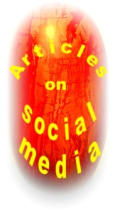

.





‘Knowledge is power’



World’s
encyclopedic
knowledge
compacted
in
your
hand





Thirty-nine per cent of patients who survived cardiac arrest and were
able to undergo interviews described a perception of awareness, but
did not have any explicit memory of events.
'This suggests more people may have mental activity initially but then
lose their memories after recovery, either due to the effects of brain
injury or sedative drugs on memory recall,' said Dr Parnia.
Among the study participants who recalled awareness, and completed
further interviews, 46 per cent experienced a wide range of mental
recollections, that were not compatible with the commonly used term,
near death experiences.
They included feelings of fear and persecution.
Only nine per cent had experiences commonly linked to a near death
experiences, while two per cent showed full awareness or out of body
experiences.
They explicitly recalled 'seeing' and 'hearing' events after their hearts
had stopped.
In many of the cases, several similar trends emerged. One in five
described a feeling of peacefulness in the moment after death.
A third said time had either moved more quickly or slowed down. An
out-of-body experience was felt by 13 per cent of those asked.
The bright light or golden flash image often used in Hollywood films
was also described by some patients.
Others experienced a more unpleasant sensation of fears of drowning
or being dragged through deep water.
Dr Parnia said that the number of people having experiences when close to death would be higher were it not
for drugs and sedatives given to patients.
The study was launched in 2008 following a successful 18-month pilot phase at selected hospitals in the UK.
It allowed the research to be expanded to include other centres within the UK, mainland Europe and North
America.
Dr Parnia added: 'Contrary to perception, death is not a specific moment but a potentially reversible process
that occurs after any severe illness or accident causes the heart, lungs and brain to cease functioning.
'If attempts are made to reverse this process, it is referred to as 'cardiac arrest'; however, if these attempts do
not succeed it is called 'death.
'In this study we wanted to go beyond the emotionally charged yet poorly defined term of near death
experiences to explore objectively what happens when we die.
'While it was not possible to absolutely prove the reality or meaning of patients’ experiences and claims of
awareness, (due to the very low incidence - two per cent - of explicit recall of visual awareness or so called out
of body experiences), it was impossible to disclaim them either and more work is needed in this area.
'Clearly, the recalled experience surrounding death now merits further genuine investigation without prejudice.'


Please raise the vol to listen to the
lady airing awe @ the SINGLE author encyclopedia
You may also like:
The End of Britain Says Money Week
"Nada al-Ahdal" would rather die than be forced to child marriage
Video: How Porn Creates the John &Trafficking
Video: O M G Dance That You May Not Easily See
Empowering Book Newsletter






WOMEN’S POWER: ITS PAST, ITS PRESENT, ITS FUTURE: FEMOCRACY
WEB PAGES
OUR OFFERING
UPLOADED ITEMS
OUR EMAIL
kri200@womenspowerbook.org
QUESTION




















